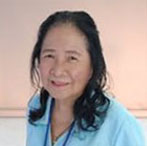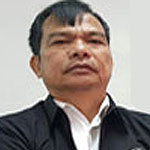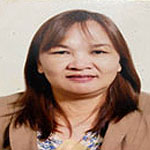'Declaration and Call for Action' of the 5th National GAD Summit
Here are the full version and the abridged version of the
"Vigan City National GAD Summit 2024 Declaration and
Call for Action (Vigan City DCFA)." The full version of the
Vigan City DCFA contains the examples of actions that
co-ops can do for GAD mainstreaming and for
climate change.
Click this link to also download the full version (PDF file) of the
Vigan City DCFA.
Or, click this link to download the abridged version (PDF file)
of the Vigan City DCFA.
FULL VERSION
“5th National Summit on
Gender and Development (GAD) in Cooperatives”
Theme: “Accelerating Gender Equality for Real and Lasting Change in Philippine Co-ops” #GEinPHcoops
Vigan Convention Center, Vigan City, PH
March 4-6, 2024
Organized by the Gender Equality Resource Center (GERC) Inc.
in partnership with Nueva Segovia Consortium of Cooperatives (NSCC)
Vigan City National GAD Summit 2024
DECLARATION AND CALL FOR ACTION
HAVING CONDUCTED the “5th National Summit on Gender and Development (GAD) in Cooperatives” #GEinPHcoops on March 4-6, 2024 in the Vigan Convention Center, Vigan City, Philippines, with resource speakers who presented and shared on their assigned topics toward these Summit objectives:
1) To share information on how cooperatives are mainstreaming GAD in people, policies, programs/projects/activities, and enabling mechanisms; and to highlight the impact of GAD in cooperatives
2) To identify how to sustain and expand GAD mainstreaming in cooperatives to further strengthen actions in addressing particularly socioeconomic, climate change, and digital technology challenges
3) To issue a call for action to all cooperatives, legislators, government agencies, and civil society to help accelerate immediately—NOW—gender equality and GAD efforts for real and lasting change in Philippine cooperatives and to contribute to attaining the United Nations Sustainable Development Goals (UN SDGs)
BEING AWARE of the gender and development (GAD) perspective in the “Statement on the Cooperative Identity (SCI)”
RECOGNIZING the importance of the United Nations Sustainable Development Goals (UN SDGs), adopted by world leaders in September 2015, that seek to “end all forms of poverty, fight inequalities, and tackle climate change, while ensuring that no one is left behind,” and of the important roles of cooperatives in attaining the SDGs by year 2030 through GAD mainstreaming and other development actions
FURTHER RECOGNIZING the grim scenario on achieving gender equality that should concern all development organizations—including cooperatives that are at the center of people’s socioeconomic lives and with which the people have entrusted their hard-earned money—the grim scenario being, as said by UN Secretary-General António Guterres in March 2023, that progress toward gender equality is “vanishing before our eyes” and that gender equality has become “300 years away,” based on the then latest estimates from UN Women and caused by factors also identified by UN Secretary-General Guterres that have been leading to the abuse, threats against, and the violation of women’s rights around the world; and those factors having been made worse by the onset of COVID-19 that dealt a huge extra blow to gender equality efforts as the pandemic deepened pre-existing inequalities, and exposed vulnerabilities in social, political and economic systems that, in turn, also amplified the pandemic’s impact
PURSUING the International Cooperative Alliance (ICA) campaign “Co-ops for 2030” with the objective of making “cooperatives learn more about the SDGs, commit to pledges to contribute to achieving the SDGs (often through initiatives that are already in place), and report their progress” while also RECOGNIZING the fact that for the past 25 years, the ICA Asia and Pacific’s Committee on Women has been providing recommendations to create gender-sensitive laws and policies for cooperatives in order to foster leadership development and enhance the capacity of women in cooperatives and, furthermore, also support cooperatives’ capacity-building in climate change actions and with additional calls for stronger efforts to respond to challenges from the COVID-19 pandemic, prolonged conflict, climate change and natural disasters, and the deteriorating environment that are all jeopardizing lives, dignity, and livelihoods of women and girls in cooperatives
KEEPING IN MIND that, indeed, cooperatives being instruments for social justice, equity, and economic development should be strong and sustainable in order to face and overcome challenges from all fronts
TAKING INTO CONSIDERATION the declarations and calls for action adopted in previous summits and conferences on gender equality and cooperatives, particularly on the issue of integrating a gender equality perspective in all policies, programs, projects, and activities of cooperatives at all levels, toward their socioeconomic objectives
STILL FURTHER RECOGNIZING that it is also vital that cooperatives be able to continue or sustain and then expand these gender-related actions amid the ever-increasing challenges in today’s world—particularly the climate change, digital technology, and socioeconomic challenges as elaborated on by the 5th National GAD Summit resource speakers, with digital technology as a challenge is highlighted not only about infrastructure, systems, and algorithms but being more about people and even more critically about equality and empowerment
ACKNOWLEDGING that cooperatives have and/or can tap the needed resources to do effective GAD mainstreaming (resources being human resources, financial resources, GAD assessment and training tools, gender-fair cooperatives to learn from and be inspired with, etc.); and that particularly among the tools available to cooperatives are the provisions in the Cooperative Development Authority (CDA)’s Memorandum Circulars (MCs) on GAD that are MC No. 2013-22 (“Guidelines on Mainstreaming Gender and Development in Cooperatives”) and MC No. 2017-04 (“Tool for Assessing Progress of Gender Equality in Primary Cooperatives as Supplemental to Memorandum Circular 2013-22”)
WE, the 386 delegates (259 female and 127 male) from 106 primary co-ops, federations/unions, cooperative banks, insurance organization, national government agencies, local government units, and non-government/civil society organizations gathered here in Vigan City, bonded together in a Summit by our continuing commitment that is strengthened by our shared values and principles, and our firm common objective of accelerating gender equality to achieve real and lasting change in our cooperatives, do DECLARE and RESOLVE the following:
1. CALL on cooperatives that they must continue mainstreaming GAD in their own organizations so that they can contribute to attaining the UN SDGs for greater development and sustainability, the benefits of which—including gender equality, climate change, digital technology, and socioeconomic benefits—will cascade to the cooperatives, households, and communities;
2. CALL on government leaders, government organizations, and local government units; cooperative development councils, federations, and unions; and other organizations that support development of cooperatives to help and support wide-ranging actions of cooperatives to help attain the UN SDGs;
3. CALL on all cooperatives that to help them contribute to attaining the UN SDGs, they must accelerate GAD mainstreaming in their organizations by implementing CDA’s MC No. 2013-22 (“Guidelines on Mainstreaming Gender and Development in Cooperatives”) and MC No. 2017-04 (“Tool for Assessing Progress of Gender Equality in Primary Cooperatives as Supplemental to Memorandum Circular No. 2013-22”) and, particularly, the “Gender and Development (GAD) Assessment Tool” provided for in MC No. 2017-04 as their guide on the level of their GAD mainstreaming and on their gender-related actions to take;
4. CALL on the CDA to enforce compliance thereof, and for government leaders, government organizations, and local government units; and other organizations that support development of cooperatives to provide assistance, including policy support, in cooperatives’ implementation of CDA’s two MCs on GAD;
5. URGE cooperatives at all levels, therefore, to conduct GAD mainstreaming through the four entry points specified in the two GAD MCs, these entry points being: people, policies, programs/projects/activities, and enabling mechanisms, with a range of specific actions to be done by everyone in the cooperatives. These specific actions being, but not limited to, the following—
PEOPLE
-Conduct gender-sensitivity training (GST), trainers’ training, and other gender-related sessions for cooperative’s officers, staff, and members
-Attain gender balance in the cooperative through actions such as raising awareness and acting on establishing the partnership and the complementing roles of spouses in members’ households as well as of women-members and men-members in livelihood/enterprises (such as strengthen market chain; establish and strengthen involvement of women farmers in collective marketing; increase women’s and/or men’s involvement in the cooperative’s activities; etc.)
-Develop GAD role models within the cooperative to inspire and help assist members (women and men) in discovering their potentials and achieving their aspirations through socioeconomic means (such as financial literacy activity; confidence-building; skills-building and availing of opportunities for livelihood and enterprise; youth development; senior citizen members’ participation; etc.)
-Provide continuous education and capacity-building for the GAD Committee, Education Committee, GAD Focal Persons, and other officers of the cooperative to be its accredited trainers/resource speakers on GAD/gender equality
-Tap volunteers among officers, staff, and members to help the cooperative in implementing GAD-related efforts
POLICIES
-Create the cooperative’s GAD policy that contains the guidelines, procedures, and practices in integrating GAD in all aspects of the organization
-Create other policies and documents that will make the cooperative achieve sustainable development while also ensuring that gender-fairness is embedded in the policies and documents (such as organizational safety and health policy; Code of Ethics for cooperative’s officers, staff, and members; officers’ election and appointment; human resource recruitment, management and development manual; etc.)
-In the cooperative’s Bylaws, provide for a number of seats (such as two seats, three seats, etc.) for each gender in the Board of Directors
PROGRAMS/PROJECTS/ACTIVITIES (PPA)
-Institutionalize and provide budget for GAD mainstreaming strategies to be implemented through the PPA
-Monitor and evaluate progress in the GAD mainstreaming strategies to be implemented through the PPA, leading to impact assessment of GAD mainstreaming in the cooperative
-Promote equal opportunity and partnership of women and men in the conduct of the cooperative’s activities, including economic activities, while also giving focus on poverty mapping of women
-Cooperate/coordinate/partner/network with other primary and/or federation-level cooperatives, other private organizations and government agencies—in the Philippines and international—to implement or to help implement gender-related PPA within the cooperative (such as various social services and community development-related PPA; livelihood and enterprise; climate change; etc.)
-Acknowledge and celebrate GAD-related achievements within the cooperative, and also participate in events outside the cooperative that aim at promoting and strengthening GAD in cooperatives
ENABLING MECHANISMS
-Allocate resources for GAD concerns from the Cooperative Education and Training Fund (CETF) and Community Development Fund (CDF) since there is no identified source of fund yet for GAD concerns
-Implement CDA MC No. 2013-22 (“Guidelines on Mainstreaming Gender and Development in Cooperatives”) and MC No. 2017-04 (“Tool for Assessing Progress of Gender Equality in Primary Cooperatives as Supplemental to Memorandum Circular No. 2013-22”) and, particularly, the “Gender and Development (GAD) Assessment Tool” provided for in MC No. 2017-04 to rate the manifestation of gender equality in the cooperative, the results of which the cooperative will use to create and implement its GAD plan
-Conduct gender analysis in the cooperative; and collect, maintain, and use the sex-disaggregated data (SDD) of the membership, the results of which the cooperative will use to mainstream GAD in the cooperative while also specifically ensuring that the continuous advocacy on women’s empowerment is embedded in the cooperative’s culture and operations
-Use gender analysis and SDD results to enable both women and men of all ages in the membership to have access to and control over resources and benefits in the cooperative
-Create and implement the annual GAD plan and budget
-Mainstream GAD in the overall annual cooperative plan and budget, strategic plans, and operations review
-Integrate GAD in conducting the cooperative’s activities/events (such as Pre-Membership Education Seminar [PMES]; ownership meetings; savings and loans seminars; financial literacy seminars; maternal and childcare; youth development activities; training events; medical missions; fun runs; etc.); furthermore, integrate together GAD and environmental concerns in order to demonstrate the role of the cooperative and cooperators (women and men of all ages) in taking care of the environment (such as in tree-planting, clean-up campaigns, community development, Brigada Eskwela, sustainable farming, etc.)
-In agri-based cooperative or services, among the areas for conducting GAD mainstreaming to benefit the cooperative and membership are in the agro-enterprise clustering approach, access to agriculture production loans, community-based enterprise development, public-private partnership in skills training and enterprise development, and similar efforts
-Make available GAD-related facilities in the cooperative (such as GAD desk, corner, learning center or other designated area with resource materials; gender-friendly restroom; lactation/breastfeeding area; ramps, express lanes, and other accessibility areas for people needing such features; safe working areas; etc.)
-Officers, staff, and members promote their cooperative to other cooperatives and communities as a GAD center in the locality where GAD resource persons/speakers and GAD-related facilities are available and which other cooperatives and development organizations can use, learn from, and emulate for their own gender-related activities/actions; institute the GAD center in the cooperative’s structure
-Use media (print, broadcast, online/digital—such as brochures, newsletters, radio/TV broadcast, website, online chatgroups, podcast, etc.) to involve more the members and prospective members in information dissemination about cooperatives, including gender-related information
-Furthermore, COOPERATIVES—be loud and proud that you are GENDER-FAIR COOPERATIVES! Establish and announce to one and all your GAD involvement by having your cooperative’s GAD logo, slogan/motto, and other promotional/identity marks that can be embedded alongside your official cooperative name/logo/slogan, in your service/marketing/promotional materials, products, documents, vehicles, etc.
6. CALL on cooperatives to intensify (make stronger) capacity-building on GAD mainstreaming and gender equality of their human resources like GAD trainers in cooperatives; sensitize all their officers and staff on gender concepts and issues; and reach out to the members to awaken in them the cooperative principles and values and also the importance of gender equality, leading to real and lasting change; and, in connection with these objectives, tap GAD trainers/experts who can give assistance, if needed, to implement GAD mainstreaming activities (e.g., GAD trainers/experts from different Philippine cooperatives who are members of the “GAD in Co-ops Resource Pool [GCRP]” that was established by the Gender Equality Resource Center [GERC] Inc.);
7. CALL on, particularly, federation-level cooperatives, to implement and promote GAD mainstreaming through timely and relevant actions such as, but not limited to:
· Urging member-cooperatives to implement a family enrichment program with objectives like promoting roles of women in family and leadership dynamics, family budgeting, financial counselling, and related concerns
· Organizing GAD congresses that gather the member-cooperatives in pursuit of crucial objectives (e.g., to pass GAD-related resolutions [examples of GAD-related resolutions passed in the GAD Congress of the MASS-SPECC Cooperative Development Center being: 10 percent allocation of member-coops of their GAD fund will be from their local CETF; if local CETF is not enough, the CDF may be used; officers in MASS-SPECC must have or at least start their GAD programs in their respective cooperatives; and primary cooperatives to use the web-based “GAD Assessment Tool” developed by the GERC Inc., for MASS-SPECC’s monitoring and evaluation])
· Conducting various GAD activities for the member-cooperatives (such as GST; trainers’ training with accreditation of GAD trainers/facilitators; GAD regional workshops and strategic planning workshops; GAD online forums; regional GAD mainstreaming orientation and assessment during ownership meetings; GAD mainstreaming manual and GAD policy template to be created and provided for member-cooperatives; etc.)
· Establishing an information system where there is fully integrated SDD and/or gender-related data in the federation level’s systems; and with the use of the web-based “GAD Assessment Tool,” monitor the member-cooperatives
· Providing GAD-related incentive to member-cooperatives in good standing such as providing a number of years’ subscription to the web-based “GAD Assessment Tool”
· Having a number of slots (e.g., two slots) for women representatives in the federation Board of Directors, and if it happens that all women are already in the Board of Directors, the slots designated for the women representatives will be allocated to men representatives
· Ensuring that, in partnership and in collaboration with its member-cooperatives, a percentage of CETF due to apex federation is allocated for GAD (e.g., 30 percent of the 50 percent due to the apex federation)
· Organizing, operating, and sustaining a “GAD in cooperatives center” in the federation level
· Tapping volunteers in implementing GAD-related efforts
8. URGE cooperatives to build their capacities for their timely climate change actions as well as for their stronger efforts to respond to challenges that socially and economically affect members of all genders and ages caused by several factors including, but not limited to, the lingering COVID-19 pandemic, prolonged conflict, climate change and natural disasters, and deteriorating environment that jeopardizes lives, dignity, and livelihoods of particularly women and girls in cooperatives;
9. URGE cooperatives to become a positive force in addressing climate change by designing and implementing specific timely climate change actions that they can do in their programs and that will passionately and actively involve all leaders, staff, and members, with particular involvement of women, youth, and children. Among the climate change actions are:
· Developing products and services for increased uptake by cooperatives of renewable energy that has several social, economic, and environmental potential benefits. Among the benefits is activating more the current membership and attracting new membership—all inspired by the cooperatives’ use of renewable energy and also nature-based solutions that support biodiversity that they as members can also apply in their enterprises, households, and communities. Nature-based solutions are actions aimed at protecting, restoring, and sustainably managing ecosystems to co-produce ecosystem services that particularly combat climate change and biodiversity loss. Particularly for cooperatives that are into agriculture and/or support agri-based enterprises, examples of nature-based solutions that aim at enhancing sustainability, resilience, and productivity while mitigating the impacts of climate change are agroforestry systems; soil conservation techniques; water management; diversification of coffee varieties (for coffee production); elevation changes; carbon sequestration practices; natural pest control; community-based adaptation strategies; post-harvest processing innovations; data-driven decision-making; etc.
· Upskilling of women and youth cooperators (leaders, staff, and members) in the application of emerging and innovative technologies in renewable energy that are applicable to and useful in the cooperatives and members’ enterprises and households, and community setting
· Training cooperative leaders (particularly women and youth) to help lead the use of and become champions of renewable energy in the cooperative movement
· Promoting and conducting learning activities/programs in the cooperatives for climate and energy policy advocacy and action
10. CALL on cooperatives to harness digital innovations as a force for GAD mainstreaming and overall growth of inclusive, equitable, and resilient cooperatives, with everyone in the cooperatives having access to and benefitting from these digital innovations; and the use of digital technology is instituted by policies in the cooperatives, again as mentioned earlier, with support from government and other organizations that support development of cooperatives;
11. CALL on the Philippine Congress, through the COOP-NATCCO Partylist, to support the allocation of fund for GAD concerns and activities from cooperatives’ resources, particularly because of the fact that CDA’s MC No. 2013-22 already provides for the mainstreaming of GAD in co-ops, and the said MC defines the aspects, mechanisms, and instruments for such action;
12. CALL on the CDA, cooperative federations/unions/councils, and other organizations that support the development of cooperatives to conduct an impact assessment of GAD in Philippine cooperatives so as to further know the social and economic transformations that actions for gender equality and women empowerment have helped bring about, resulting in sustainable cooperative development and quality life of members of all genders and their families. The information to be gained from the impact assessment will help enable the further acceleration of gender equality for real and lasting change in cooperatives.
ADOPTED this 6th day of March 2024 in Vigan City, Ilocos Sur, Philippines, during the “5th National Summit on Gender and Development (GAD) in Cooperatives” with the theme ”Accelerating Gender Equality for Real and Lasting Change in Philippines Co-ops” #GEinPHcoops, organized by the Gender Equality Resource Center (GERC) Inc., in partnership with Nueva Segovia Consortium of Cooperatives (NSCC).
____________________
____________________
(ABRIDGED VERSION)
(Note: Please refer to the full version
of the Vigan City DCF for the examples
of actions that co-ops can do for
GAD mainstreaming and for climate change.)
“5th National Summit on
Gender and Development (GAD) in Cooperatives”
Theme: “Accelerating Gender Equality for Real and Lasting Change in Philippine Co-ops” #GEinPHcoops
Vigan Convention Center, Vigan City, PH
March 4-6, 2024
Organized by the Gender Equality Resource Center (GERC) Inc.
in partnership with Nueva Segovia Consortium of Cooperatives (NSCC)
Vigan City National GAD Summit 2024
DECLARATION AND CALL FOR ACTION
HAVING CONDUCTED the “5th National Summit on Gender and Development (GAD) in Cooperatives” #GEinPHcoops on March 4-6, 2024 in the Vigan Convention Center, Vigan City, Philippines, with resource speakers who presented and shared on their assigned topics toward these Summit objectives:
1) To share information on how cooperatives are mainstreaming GAD in people, policies, programs/projects/activities, and enabling mechanisms; and to highlight the impact of GAD in cooperatives
2) To identify how to sustain and expand GAD mainstreaming in cooperatives to further strengthen actions in addressing particularly socioeconomic, climate change, and digital technology challenges
3) To issue a call for action to all cooperatives, legislators, government agencies, and civil society to help accelerate immediately—NOW—gender equality and GAD efforts for real and lasting change in Philippine cooperatives and to contribute to attaining the United Nations Sustainable Development Goals (UN SDGs)
BEING AWARE of the gender and development (GAD) perspective in the “Statement on the Cooperative Identity (SCI)”
RECOGNIZING the importance of the United Nations Sustainable Development Goals (UN SDGs), adopted by world leaders in September 2015, that seek to “end all forms of poverty, fight inequalities, and tackle climate change, while ensuring that no one is left behind,” and of the important roles of cooperatives in attaining the SDGs by year 2030 through GAD mainstreaming and other development actions
FURTHER RECOGNIZING the grim scenario on achieving gender equality that should concern all development organizations—including cooperatives that are at the center of people’s socioeconomic lives and with which the people have entrusted their hard-earned money—the grim scenario being, as said by UN Secretary-General António Guterres in March 2023, that progress toward gender equality is “vanishing before our eyes” and that gender equality has become “300 years away,” based on the then latest estimates from UN Women and caused by factors also identified by UN Secretary-General Guterres that have been leading to the abuse, threats against, and the violation of women’s rights around the world; and those factors having been made worse by the onset of COVID-19 that dealt a huge extra blow to gender equality efforts as the pandemic deepened pre-existing inequalities, and exposed vulnerabilities in social, political and economic systems that, in turn, also amplified the pandemic’s impact
PURSUING the International Cooperative Alliance (ICA) campaign “Co-ops for 2030” with the objective of making “cooperatives learn more about the SDGs, commit to pledges to contribute to achieving the SDGs (often through initiatives that are already in place), and report their progress” while also RECOGNIZING the fact that for the past 25 years, the ICA Asia and Pacific’s Committee on Women has been providing recommendations to create gender-sensitive laws and policies for cooperatives in order to foster leadership development and enhance the capacity of women in cooperatives and, furthermore, also support cooperatives’ capacity-building in climate change actions and with additional calls for stronger efforts to respond to challenges from the COVID-19 pandemic, prolonged conflict, climate change and natural disasters, and the deteriorating environment that are all jeopardizing lives, dignity, and livelihoods of women and girls in cooperatives
KEEPING IN MIND that, indeed, cooperatives being instruments for social justice, equity, and economic development should be strong and sustainable in order to face and overcome challenges from all fronts
TAKING INTO CONSIDERATION the declarations and calls for action adopted in previous summits and conferences on gender equality and cooperatives, particularly on the issue of integrating a gender equality perspective in all policies, programs, projects, and activities of cooperatives at all levels, toward their socioeconomic objectives
STILL FURTHER RECOGNIZING that it is also vital that cooperatives be able to continue or sustain and then expand these gender-related actions amid the ever-increasing challenges in today’s world—particularly the climate change, digital technology, and socioeconomic challenges as elaborated on by the 5th National GAD Summit resource speakers, with digital technology as a challenge is highlighted not only about infrastructure, systems, and algorithms but being more about people and even more critically about equality and empowerment
ACKNOWLEDGING that cooperatives have and/or can tap the needed resources to do effective GAD mainstreaming (resources being human resources, financial resources, GAD assessment and training tools, gender-fair cooperatives to learn from and be inspired with, etc.); and that particularly among the tools available to cooperatives are the provisions in the Cooperative Development Authority (CDA)’s Memorandum Circulars (MCs) on GAD that are MC No. 2013-22 (“Guidelines on Mainstreaming Gender and Development in Cooperatives”) and MC No. 2017-04 (“Tool for Assessing Progress of Gender Equality in Primary Cooperatives as Supplemental to Memorandum Circular 2013-22”)
WE, the 386 delegates (259 female and 127 male) from 106 primary co-ops, federations/unions, cooperative banks, insurance organization, national government agencies, local government units, and non-government/civil society organizations gathered here in Vigan City, bonded together in a Summit by our continuing commitment that is strengthened by our shared values and principles, and our firm common objective of accelerating gender equality to achieve real and lasting change in our cooperatives, do DECLARE and RESOLVE the following:
1. CALL on cooperatives that they must continue mainstreaming GAD in their own organizations so that they can contribute to attaining the UN SDGs for greater development and sustainability, the benefits of which—including gender equality, climate change, digital technology, and socioeconomic benefits—will cascade to the cooperatives, households, and communities;
2. CALL on government leaders, government organizations, and local government units; cooperative development councils, federations, and unions; and other organizations that support development of cooperatives to help and support wide-ranging actions of cooperatives to help attain the UN SDGs;
3. CALL on all cooperatives that to help them contribute to attaining the UN SDGs, they must accelerate GAD mainstreaming in their organizations by implementing CDA’s MC No. 2013-22 (“Guidelines on Mainstreaming Gender and Development in Cooperatives”) and MC No. 2017-04 (“Tool for Assessing Progress of Gender Equality in Primary Cooperatives as Supplemental to Memorandum Circular No. 2013-22”) and, particularly, the “Gender and Development (GAD) Assessment Tool” provided for in MC No. 2017-04 as their guide on the level of their GAD mainstreaming and on their gender-related actions to take;
4. CALL on the CDA to enforce compliance thereof, and for government leaders, government organizations, and local government units; and other organizations that support development of cooperatives to provide assistance, including policy support, in cooperatives’ implementation of CDA’s two MCs on GAD;
5. URGE cooperatives at all levels, therefore, to conduct GAD mainstreaming through the four entry points specified in the two GAD MCs, these entry points being: people, policies, programs/projects/activities, and enabling mechanisms, with a range of specific actions to be done by everyone in the cooperatives;
(Note: Examples of the specific actions can be seen in the full version of this Vigan City National GAD Summit 2024 DECLARATION AND CALL FOR ACTION [Vigan City DCFA].)
-Furthermore, COOPERATIVES—be loud and proud that you are GENDER-FAIR COOPERATIVES! Establish and announce to one and all your GAD involvement by having your cooperative’s GAD logo, slogan/motto, and other promotional/identity marks that can be embedded alongside your official cooperative name/logo/slogan, in your service/marketing/promotional materials, products, documents, vehicles, etc.
6. CALL on cooperatives to intensify (make stronger) capacity-building on GAD mainstreaming and gender equality of their human resources like GAD trainers in cooperatives; sensitize all their officers and staff on gender concepts and issues; and reach out to the members to awaken in them the cooperative principles and values and also the importance of gender equality, leading to real and lasting change; and, in connection with these objectives, tap GAD trainers/experts who can give assistance, if needed, to implement GAD mainstreaming activities (e.g., GAD trainers/experts from different Philippine cooperatives who are members of the “GAD in Co-ops Resource Pool [GCRP]” that was established by the Gender Equality Resource Center [GERC] Inc.);
7. CALL on, particularly, federation-level cooperatives, to implement and promote GAD mainstreaming through timely and relevant actions such as, but not limited to:
· Urging member-cooperatives to implement a family enrichment program with objectives like promoting roles of women in family and leadership dynamics, family budgeting, financial counselling, and related concerns
· Organizing GAD congresses that gather the member-cooperatives in pursuit of crucial objectives (e.g., to pass GAD-related resolutions [examples of GAD-related resolutions passed in the GAD Congress of the MASS-SPECC Cooperative Development Center being: 10 percent allocation of member-coops of their GAD fund will be from their local CETF; if local CETF is not enough, the CDF may be used; officers in MASS-SPECC must have or at least start their GAD programs in their respective cooperatives; and primary cooperatives to use the web-based “GAD Assessment Tool” developed by the GERC Inc., for MASS-SPECC’s monitoring and evaluation])
· Conducting various GAD activities for the member-cooperatives (such as GST; trainers’ training with accreditation of GAD trainers/facilitators; GAD regional workshops and strategic planning workshops; GAD online forums; regional GAD mainstreaming orientation and assessment during ownership meetings; GAD mainstreaming manual and GAD policy template to be created and provided for member-cooperatives; etc.)
· Establishing an information system where there is fully integrated SDD and/or gender-related data in the federation level’s systems; and with the use of the web-based “GAD Assessment Tool,” monitor the member-cooperatives
· Providing GAD-related incentive to member-cooperatives in good standing such as providing a number of years’ subscription to the web-based “GAD Assessment Tool”
· Having a number of slots (e.g., two slots) for women representatives in the federation Board of Directors, and if it happens that all women are already in the Board of Directors, the slots designated for the women representatives will be allocated to men representatives
· Ensuring that, in partnership and in collaboration with its member-cooperatives, a percentage of CETF due to apex federation is allocated for GAD (e.g., 30 percent of the 50 percent due to the apex federation)
· Organizing, operating, and sustaining a “GAD in cooperatives center” in the federation level
· Tapping volunteers in implementing GAD-related efforts
8. URGE cooperatives to build their capacities for their timely climate change actions as well as for their stronger efforts to respond to challenges that socially and economically affect members of all genders and ages caused by several factors including, but not limited to, the lingering COVID-19 pandemic, prolonged conflict, climate change and natural disasters, and deteriorating environment that jeopardizes lives, dignity, and livelihoods of particularly women and girls in cooperatives;
9. URGE cooperatives to become a positive force in addressing climate change by designing and implementing specific timely climate change actions that they can do in their programs and that will passionately and actively involve all leaders, staff, and members, with particular involvement of women, youth, and children;
(Note: Examples of the specific actions can be seen in the full version of the Vigan City DCFA.)
10. CALL on cooperatives to harness digital innovations as a force for GAD mainstreaming and overall growth of inclusive, equitable, and resilient cooperatives, with everyone in the cooperatives having access to and benefitting from these digital innovations; and the use of digital technology is instituted by policies in the cooperatives, again as mentioned earlier, with support from government and other organizations that support development of cooperatives;
11. CALL on the Philippine Congress, through the COOP-NATCCO Partylist, to support the allocation of fund for GAD concerns and activities from cooperatives’ resources, particularly because of the fact that CDA’s MC No. 2013-22 already provides for the mainstreaming of GAD in co-ops, and the said MC defines the aspects, mechanisms, and instruments for such action;
12. CALL on the CDA, cooperative federations/unions/councils, and other organizations that support the development of cooperatives to conduct an impact assessment of GAD in Philippine cooperatives so as to further know the social and economic transformations that actions for gender equality and women empowerment have helped bring about, resulting in sustainable cooperative development and quality life of members of all genders and their families. The information to be gained from the impact assessment will help enable the further acceleration of gender equality for real and lasting change in cooperatives.
ADOPTED this 6th day of March 2024 in Vigan City, Ilocos Sur, Philippines, during the “5th National Summit on Gender and Development (GAD) in Cooperatives” with the theme ”Accelerating Gender Equality for Real and Lasting Change in Philippines Co-ops” #GEinPHcoops, organized by the Gender Equality Resource Center (GERC) Inc., in partnership with Nueva Segovia Consortium of Cooperatives (NSCC).







